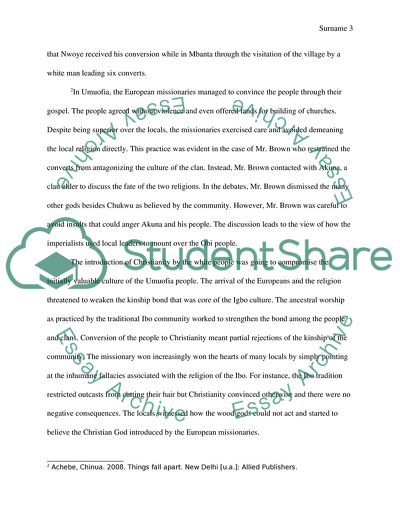Cite this document
(Things Fall Apart by Chinua Achebe Book Report/Review Example | Topics and Well Written Essays - 2000 words, n.d.)
Things Fall Apart by Chinua Achebe Book Report/Review Example | Topics and Well Written Essays - 2000 words. https://studentshare.org/history/1866253-things-fall-apart
Things Fall Apart by Chinua Achebe Book Report/Review Example | Topics and Well Written Essays - 2000 words. https://studentshare.org/history/1866253-things-fall-apart
(Things Fall Apart by Chinua Achebe Book Report/Review Example | Topics and Well Written Essays - 2000 Words)
Things Fall Apart by Chinua Achebe Book Report/Review Example | Topics and Well Written Essays - 2000 Words. https://studentshare.org/history/1866253-things-fall-apart.
Things Fall Apart by Chinua Achebe Book Report/Review Example | Topics and Well Written Essays - 2000 Words. https://studentshare.org/history/1866253-things-fall-apart.
“Things Fall Apart by Chinua Achebe Book Report/Review Example | Topics and Well Written Essays - 2000 Words”. https://studentshare.org/history/1866253-things-fall-apart.


